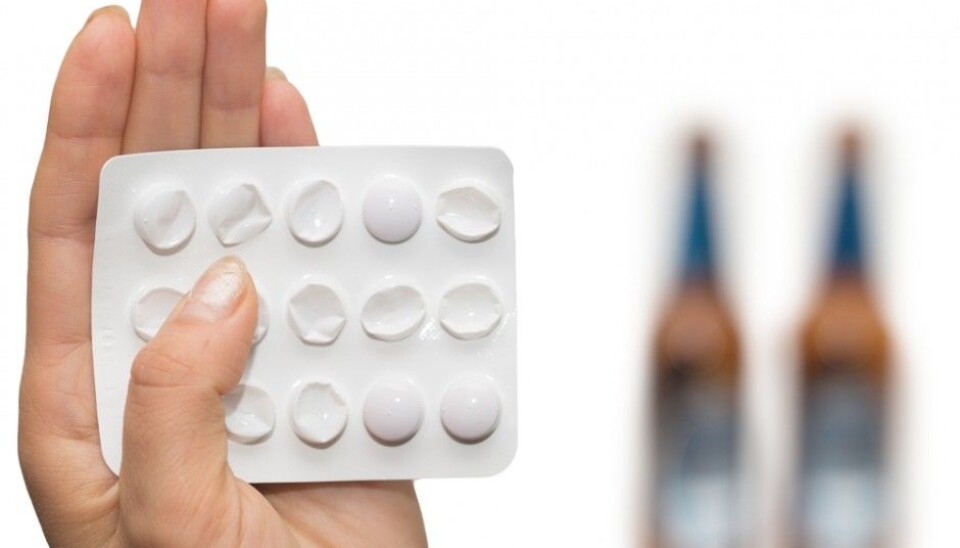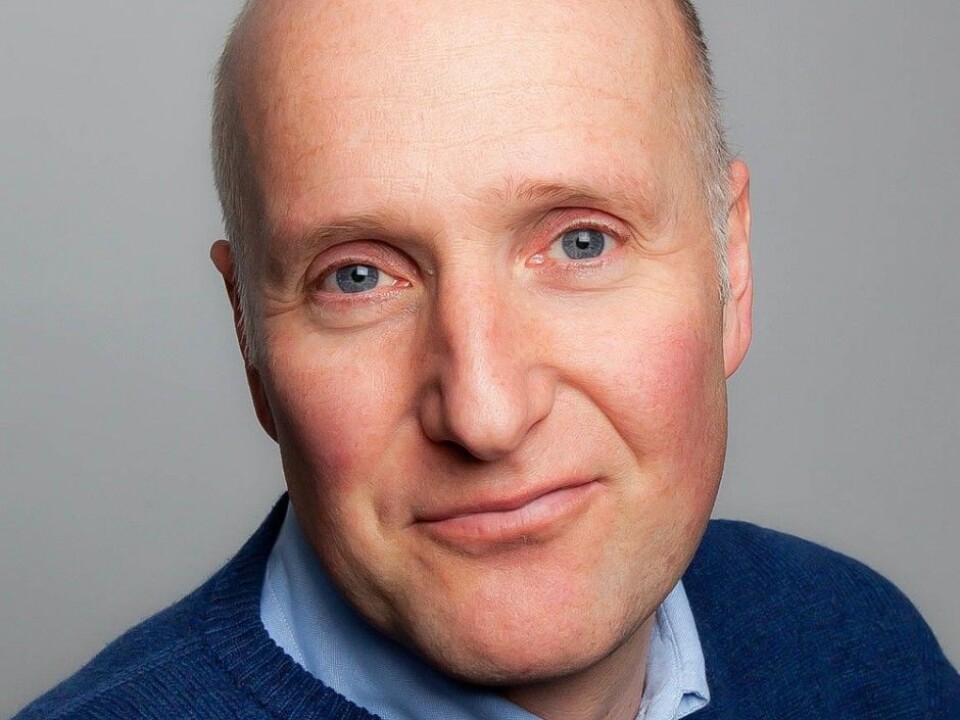
Pills can quench thirst for alcohol
Many medications are available on the market that can ease alcohol cravings, but these pills are not widely used in Norway.
Denne artikkelen er over ti år gammel og kan inneholde utdatert informasjon.
The Norwegian health services currently treat only five to ten percent of the citizenry who have problems controlling their use of alcohol. By comparison, 40 percent of all who are plagued by depression are under treatment.
“Many human lives could be saved if we treated alcohol abuse as readily as we treat depression,” says Jørgen Gustav Bramness, a professor at the University of Oslo’s Norwegian Centre for Addiction Research (SERAF).
The head the Norwegian College of General Practitioners and spokesperson for GPs, Marit Hermansen, admits that GPs don't do enough with regard to treating alcoholism.
Therapy is often insufficient
Cirrhosis of the liver, poisonings, traffic accidents, violence and several types of cancer ― these are among the well-known risks linked to drinking too much alcohol. Along with the personal calamities, alcohol-related disease and injuries cost society huge sums annually.

Alcohol abuse in Norway currently consists of a modicum of advice, or behavioural or psychotherapy. Bramness thinks these measures fall short of the mark, in quality and in quantity.
“We have a long tradition of praising the treatment of alcohol abuse without the use of any medications. I think we should have our initial focus on optimal treatment. Then we can start working out whether it should be with or without the use of medications.”
The professor advocates more frequent use of pharmaceutical remedies in treating the problem.
A tool for general practitioners
Several medications that can curb the craving for alcohol, such as Nalmefen, Naltrekson and Campra have been approved by authorities for the Norwegian market. These work in a completely different way than Antabuse (or Antabus), which has been on the market for decades.
While Antabuse makes the intake of alcohol unpleasant and nauseating, the new medications diminish a person’s desire for alcohol.
“As long as researchers are still not 100 percent sure about how alcohol affects us, it’s hard to say exactly how these medications work. But their effect is to reduce the craving for alcohol, helping the alcoholic to steer clear of drink, or stop before getting drunk,” says Bramness.
He says the new drugs work and entail few side-effects.
“Even though the effects of these medications in clinical studies have not been shown to be great, they give doctors a new tool in their toolbox when it comes to alcohol abuse, and that’s something we need.”
Myths and morals
The alcohol researcher thinks there is close to a worldwide consensus among his medical colleagues that the effective use of medications against alcoholism, in combination with therapy, provides a good solution for some patients.
To date, researchers know little about which kinds of heavy drinkers would gain the most from the pills. It’s not certain that everyone can benefit from taking medications to curb their desire for alcohol.
Also, many clinical doctors are still rather sceptical. As a result, few GPs prescribe these medications, according to Bramness.
“I think a reluctance to treat alcohol abuse with medications pivots to a certain extent on ignorance, myths and moralism.”
Many still think exaggerated alcohol consumption is more of a lifestyle than a disease.
Not covered by national insurance scheme
Many general practitioners and patients consider these drugs expensive. Norway’s national insurance scheme does not subsidise these medications in the same way it does other medications prescribed to alcohol or drug abuse patients.
“We alcohol researchers have broached this as a problem time and again without being heard,” says Bramness.
Not good enough
Marit Hermansen, head of the Norwegian Association for General Practitioners, thinks this is not the worst quandary in doctors’ offices with regard to treating alcohol abuse.
“The biggest problem is that we are not good enough at giving these patients sufficient treatment. We don’t connect with these patients like we should and don't fully cooperate with them ― not via municipal channels or between hospitals and municipalities.”
She thinks that family doctors ―general practitioners ― should be less reluctant to ask their patients about alcohol use when they show up with other medical problems, such as insomnia.
“Medicinal treatment can be included as one element, but it cannot be the entire treatment.”
Hermansen sees broad differences in doctors’ awareness of the new medications that are on the market. She doesn’t think that possible treatment shortcomings stem from moral qualms or issues, or a disdain for alcoholics.
“Lifestyle problems are something that GPs are trained to work with,” she explains.
The head of Norway’s general practitioners agrees with Bramness in his stance that medications for treating substance abuse should be included in the national health insurance scheme. This would make them cheap or free for users.
------------
Read the Norwegian version of this article at forskning.no
Translated by: Glenn Ostling


































